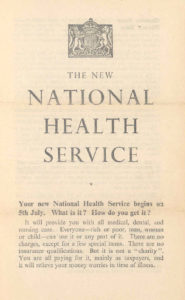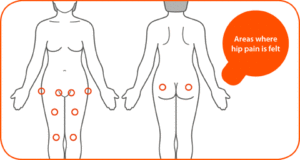Not many years after the birth of the NHS, I needed to have my tonsils out, and I will never forget the GP asking my mother whether she wanted me to have this done ‘properly’ or ‘with the riff raff’.

I recalled that phrase just the other day . . .
I had arrived for my appointment at a well-known London hospital a few minutes early. Although the waiting area was crowded, there was no wait at reception and, after signing in, I made for a chair at the very far end of the room. I didn’t want to catch anybody’s anything, if I could help it.
From this vantage point I saw very little movement for some fifteen minutes, until the first name was called. There was now a bit of rustling while someone got their things together and disappeared through the swing doors.
By the time an hour had gone by, three more people had been summoned and I had reached the second murder in the Agatha Christie picked up from one of those random book exchange points I happened to pass on my way in.
When I finally heard my name called, another hour or so later, I had reached page 110.
And here, before we come to my six minutes with the doctor, I must interrupt my story to report how a member of the non-medical staff came round to all of us weary waiters – today’s intake of riff raff – with a big box of chocolates: an oasis of kindness and consideration which I will not soon forget.
As for the doctor! After I had been in the consulting room so long that I thought I’d been forgotten, he catapulted in, told me his name and asked me why I was there.
I told him as briefly as I could of the arthritic hip for which I had first received treatment twenty years before. It was now a lot worse and I feared for my mobility. I was there to find out just how bad it was and what to do about it.
Dr H had not yet looked at me below the neck, but his answer was immediate: ‘nothing to do about it’. The GP had mentioned cortisone injections, and earlier hospital visits had led to hydrotherapy and exercise regimes . . . All these were a waste of time, he said, and then, almost as an afterthought: ‘I’d better look at it.’

I lay on the bed. He raised and rotated first one leg – now bare, except for an ankle sock – then the other, as if they were the hands of a clock. He delivered his diagnosis: an arthritic hip!
As for his advice, given on the run: CYCLE. SWIM. WALK. No suggestion of physio. No talk about the doubtful wisdom of delaying an operation for someone already in their eighties. He was gone.
Many years before, at a poly clinic in Soviet Estonia, a doctor who really did have nothing to offer – except mustard plasters and Chinese Tiger Balm – to deal with my badly bruised ribs (I had slipped on the ice while peering through the dirty windows of the house in which my mother had been born) at least took an x-ray, told me what I had done and what to expect.

And then, a few days later, somewhere between Vilnius and Riga, a bedraggled group of English-speakers boarded the train my husband and I were on. Returning from a Bahai conference in some desolate seaside resort, between them they collected and gave me a fistful of painkillers. Like that Agatha Christie, the gift of some person unknown, the riff raff had come to my aid.
NOTE: This is one of the very few times – whether as an in-patient or an out-patient – I have been disappointed in an NHS hospital. Without them, I would not still be around to tell this tale.